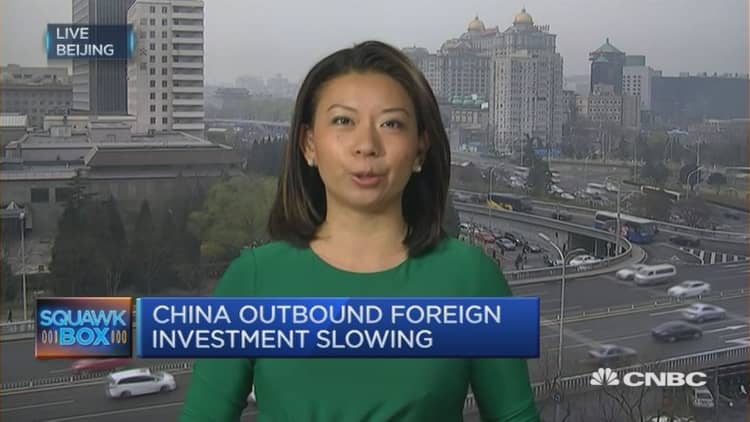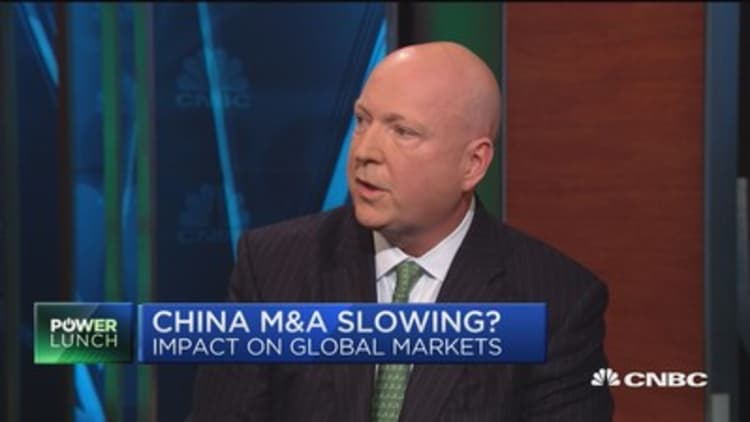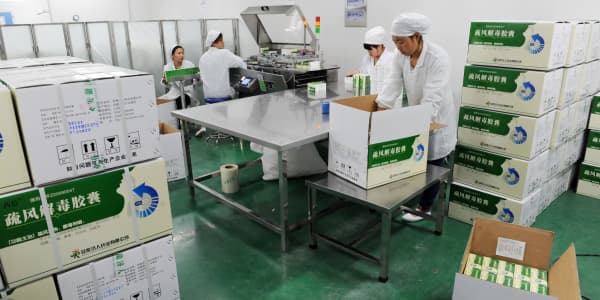While companies the world over compete for a slice of China's populous consumer market, start-ups headquartered in Asia's largest economy want to conquer not just the domestic field, but also to come out on top worldwide.
It's an ambitious move that analysts said will upgrade the country's position in the global value chain.
The trend comes as an increasing number of private companies, such as Alibaba and Tencent, are taking the lead in the latest phase of China's "Going Out" — a policy initiated at the turn of the century to increase the country's outbound investment by encouraging companies to go abroad.
That is a shift from the earlier stages of the policy where state-owned enterprises and large Chinese firms extended their sales networks overseas or expanded their footprints through mergers and acquisitions. Those spending sprees included ChemChina's takeover of Italian tire maker Pirelli and Lenovo's purchase of an IBM unit.
In what could be a new chapter in the story of China's spreading its economic influence globally, start-ups set their eyes internationally in the early stages of operations — even as their home market offers plenty growth opportunities. Young companies interviewed by CNBC explained this trend, saying that technology and innovation should not be bound by borders.
"We are very much a Chinese company and China is a big market, but the adoption of new technology and new products like ours may be faster in other markets so we shouldn't confine ourselves," said Wang Mengqiu, founder and chief executive of Zero Zero Robotics.
Wang and his team have been operating from both China and the United States since setting up the firm in 2014. Their first product, an autonomous flying camera, is sold globally online since launching in 2016 and recently debuted in Apple stores in the U.S., U.K., Canada, Hong Kong and China.
Wang declined to disclose exact sales figures but said "way more than 50 percent" of the company's revenue is generated outside China.
Beyond the prospects of better financial returns, start-ups also see surviving the global marketplace as a test of their businesses' viability and resilience.
Ofo and Mobike, for instance, have taken their bicycle sharing concepts overseas. And co-working space operator Distrii was barely a year old when it announced in January that it will lease more than 60,000 square feet of space in an office building in Singapore's central business district. The company is expected to start operations in the city state in the first half of 2018.
"The vision is to IPO, though only when we have reached a mature state… To grow and bring more value to our network, we will need to expand to new markets. Bringing our product to international markets will be the ultimate test of our value proposition," Distrii chief executive Hu Jing said in an email.

Redefining "Made in China"
Analysts told CNBC that the Going Out movement of start-ups from China will enhance the country's economic competitiveness and redefine the "Made in China" label that many perceive as synonymous with low cost and low quality.
The wave of start-ups going abroad also demonstrates to the world that China can take on the global stage with new business concepts, rather than simply through acquiring stakes in foreign companies, said Neil Wang, global partner and China managing director at Frost & Sullivan.
"The international development of start-ups is accompanied with demonstration of high-tech products, which shows the world that 'Made in China' products are also innovative and user-friendly," he said in an email.
As more start-ups set up operations and export their business models beyond the Chinese borders, the country's outbound investments will get a further boost and China will solidify its position as a major exporter of capital and innovation — after years of being a favored investment destination.
China's non-financial outbound investments rose from $5.5 billion in 2004 to a new high of $170.11 billion in 2016, according to data compiled by the country's National Bureau of Statistics. This figure is expected to continue growing in the coming years despite the country's recent capital controls, consultancy EY said.
"Chinese enterprises have begun to rapidly increase their global investment to achieve mid- to long-term growth. With the 'One Belt, One Road' initiative and other strategies serving as a powerful engine, more Chinese enterprises are expected to invest overseas and, therefore, a double-digit growth rate in China's outward [foreign direct investment] is expected in the next few years," Loletta Chow, global leader of EY's China Overseas Investment Network, said in a report.

Frost & Sullivan's Wang agreed. He added that with start-ups eyeing developed markets, China's outbound investment would gradually shift from developing economies to countries such as the U.S. and Germany. The major areas of Chinese investment would also transfer from real estate, equipment manufacturing, mineral resources, food and beverages to information technology, internet and media, he predicted.
But even as an increasing number of firms from the world's second-largest economy find successes abroad, every Chinese company with whom CNBC spoke said China continues to be a key growth market.
"It's important for us to continue being in China. There is a lot of tech talent in China and the lower operating costs here means that we get a longer runway with the amount of investments that we get. Being in U.S. and China is having the best of both worlds," said Wang from Zero Zero Robotics.
There is a lot of tech talent in China and the lower operating costs here means that we get a longer runway with the amount of investments that we get.Wang Mengqiufounder and chief executive of Zero Zero Robotics
Xiaomi, whose internationalization effort since 2014 has resulted in it becoming the second-largest smartphone brand in India, said China remains a major market for its future products even as it continues to seek new overseas markets for expansion.
"China is our home market and it is the market where we have first proven that our business model works," a Xiaomi spokesperson said. The seven-year-old electronics company sells products directly to consumers through both online and offline channels, which allows it to keep operating costs and prices low.
"We are continuing to innovate and succeed in China, and bringing what we have learnt to overseas markets. It will always be a key market for us, as we need to continue iterating on our business model for it to be a long-term, sustainable one."





